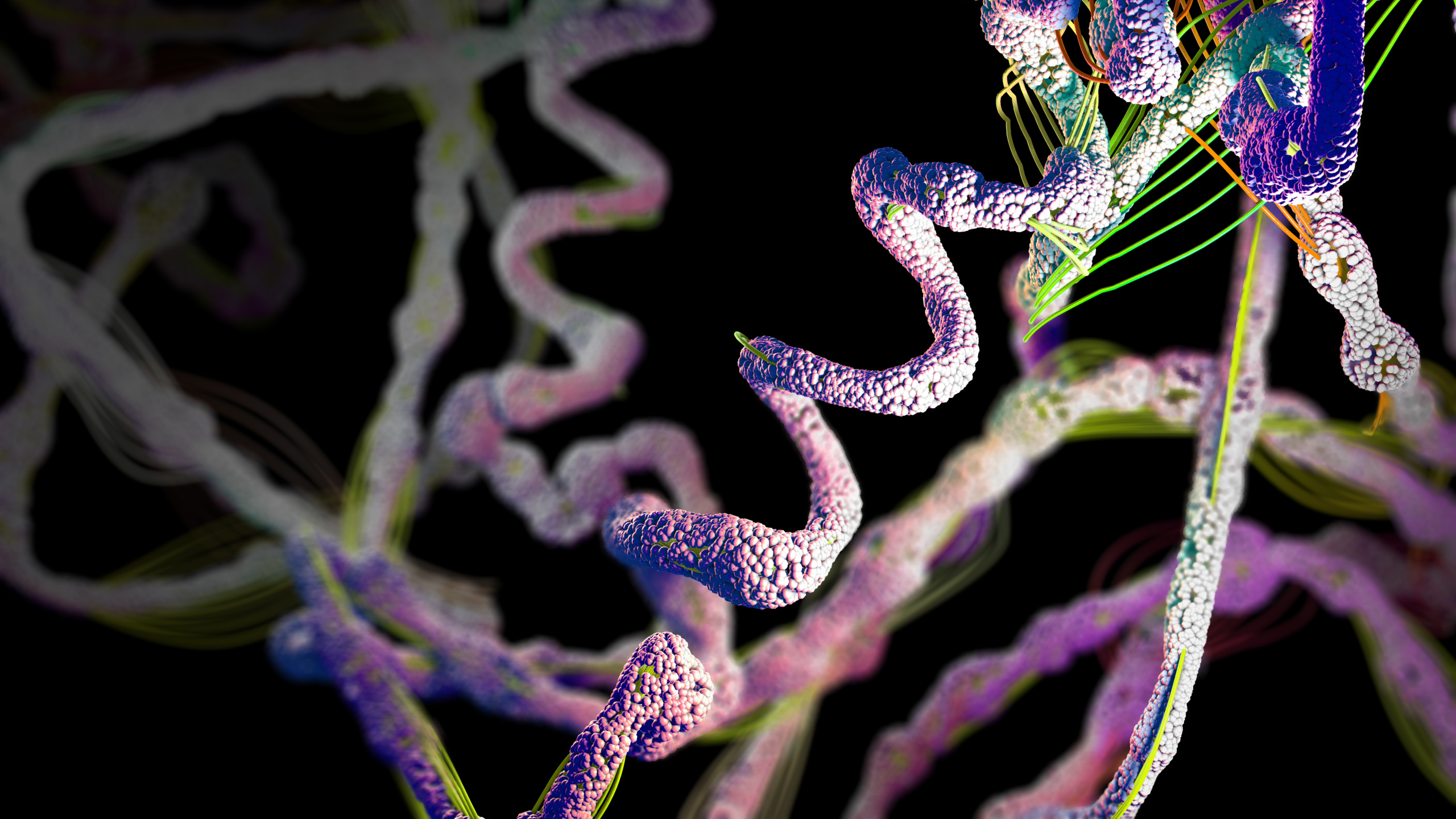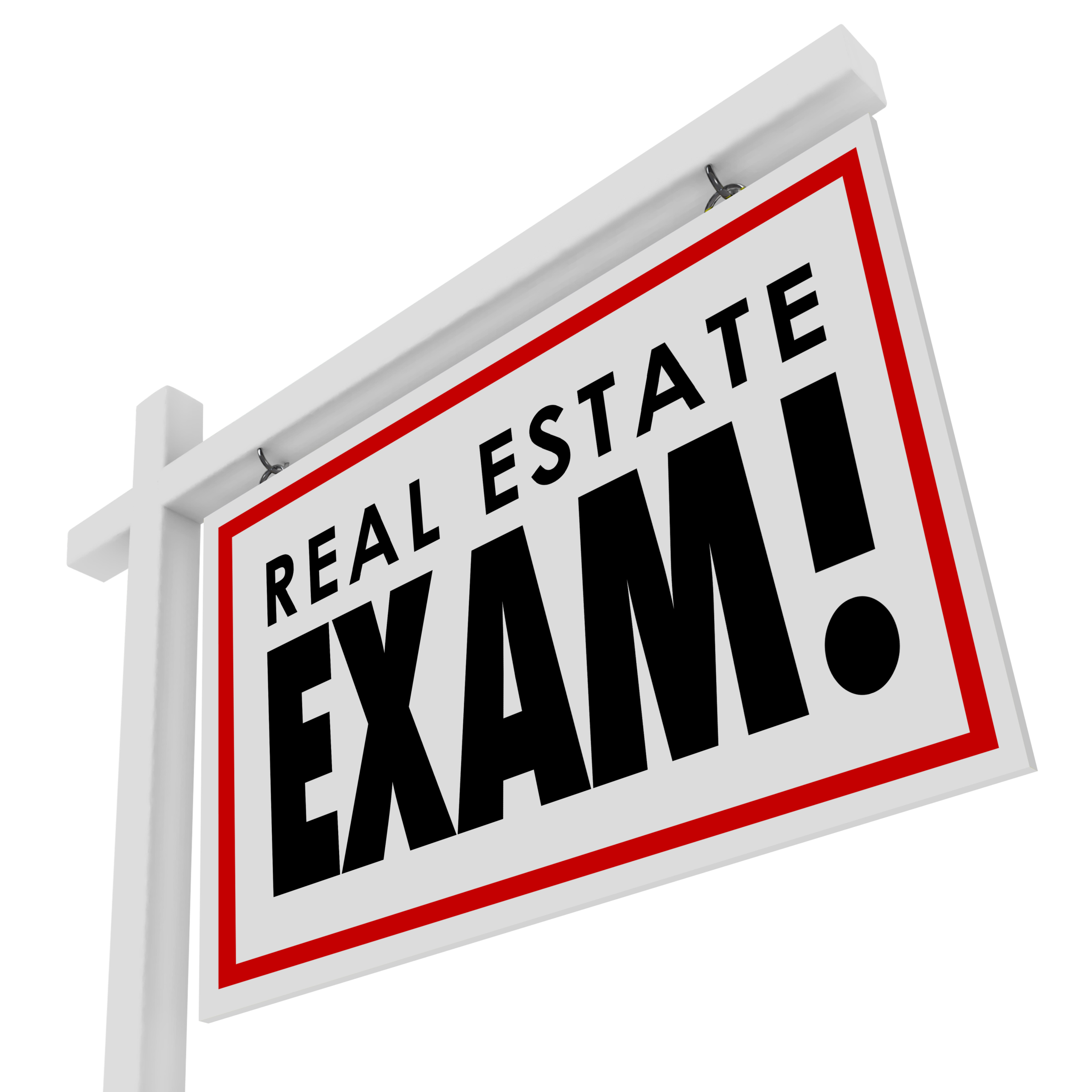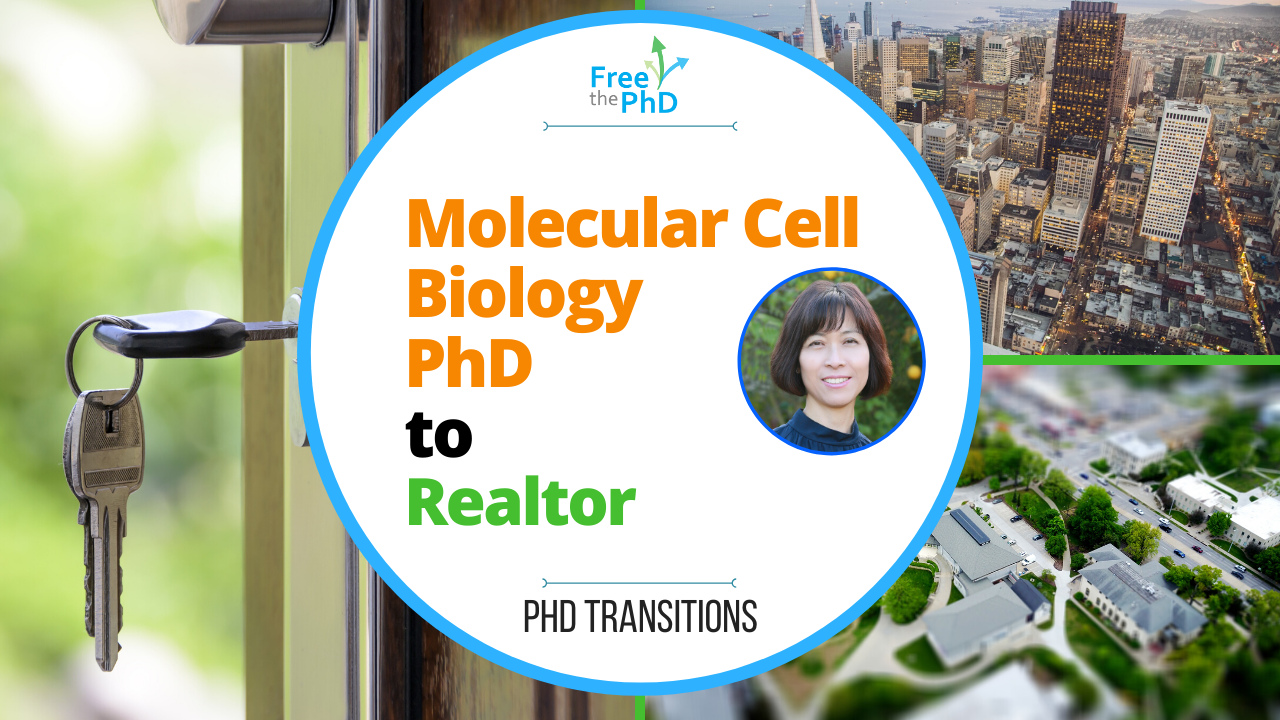There are so many ways to move from the lab to a life you love. This is especially true when the path ahead in academia is uncertain, and many key aspects of success are not within your direct control, despite all of your best efforts and investment in time, energy and hope. In tough times and at a career crossroads, sometimes you discover that the right thing to do is to follow your true calling – and sometimes that calling has been hiding in plain sight all along! Let’s follow Dr. Soo Jung (Julia) Kim, PhD, on her journey from a bench researcher studying protein folding, to her current career where she helps people realize their dreams of home ownership through the world of real estate!
Why did you decide to go to grad school, and what were your initial career aspirations?
I always wanted to have my own laboratory and carry out research independently. Science really excites me, ever since I was little. My goal was to change the way people think, to truly inspire others, and to leave a legacy behind my path. Career-wise, my goal was to become a professor.
What did you study?
My research was focused on how proteins are localized, fold, and achieve proper conformation. I investigated critical folding steps in proteins whose misfolding leads to fatal human diseases such as prion disease and cystic fibrosis.

When did you start to think about your next step, post-grad school? What options did you weigh, and what factors influenced your decision?
At that time, I had a very strong drive to become a professor. It did not occur to me that there are any other career choices. It is also true that I was unaware of what other options I might have.
So what did you do next?
After the PhD, I did post-doctoral training for 4 years. I had an impressive publication record, but it was not enough for me to land an academic position. At that time, I got married and started a family, and decided to take an industry position, and later a government institute job, which I did not enjoy much. Several years later, I returned to academia, made stellar publications, and still ended up not getting an academic position. This became my turning point.
You mentioned some non-academic positions you took before you returned to academia. What about those jobs did you discover were not interesting or satisfying for you?
My first job outside academia was working as a senior scientist for a big corporation in Korea. There was a lack of leadership when I joined the firm, and projects were not moving forward as they should. Many decisions were made top down, and there was a lack of energy and innovation. The salary was good, yet I was not able to see myself grow. I decided to leave and accepted a job offer from a government research institute. Going back to research was exciting; however, I struggled to achieve a certain level of research freedom. The salary was good, and the job stability was high. After I realized I was only using less than 50% of my scientific skills, I began to look for an opportunity to maximize my intellectual skills. That is how I returned to the U.S. and started working from the bottom level in a university laboratory.
In returning to academia and then working hard to produce more great research, yet still not getting a chance at a faculty position – this must have been very disappointing! Many other people in academia face similar disappointments after investing many, many years into their research as well. What advice would you give to people in a similar situation to help them through this tough period of their life?
I would like to say, “You are not alone in this disappointing moment”. If it helps whomever is going through similar situations I was in, I can share how I got through it. I had trouble sleeping for a couple of years, and found that I even stopped breathing in my sleep several times. My self-esteem shrunk to the size of an ice cube. I had to turn this around and make changes in order to live. I shut down all the communication from the sources of negativity around me, including from family, colleagues, and even close friends. I started to rebuild myself within me, and the healing began from forgiving myself and being thankful for what I have and who I am.

That’s so difficult to do, especially when you may not have had much in the form of support. I’m so glad you were able to see your potential despite the disappointments, heal, and create a new beginning that has carried you forward. Hopefully others out there struggling with the same feelings can also find encouragement and hope for new beginnings ahead. As you built a new identity and career direction, how did you decide to try for real estate? Who or what inspired you to investigate this career path, and why did it feel like a good fit for you?
It came so naturally. I thought I will learn it for my own benefit when I buy and sell my own property. As a matter of fact, I found it really interesting when I studied it. Previously, I had a wonderful experience with my realtor when I was a first time home buyer. She worked very hard to get me the house with the best price and terms. She became my role model.
So what kind of preparations did you do when you began working in real estate?
First, I took real estate courses online. Taking at least 3 real estate classes is a prerequisite for the state license exam. After passing the real estate salesperson license exam, I selected a real estate firm to join, where I could practice my business.

You are in a client-facing role now in real estate, which involves a lot of communication with different people. How do you feel about this kind of work compared to academic research?
Communication skills are a must-have if we aim to go beyond the post-doctoral level. To deal with people is an essential skill. Whether in academia or in a corporate setting, the spectrum of people we manage gets bigger and more difficult, each step of the way. The difference is that in real estate, the communication is much more intense and often requires a very short time frame. Real estate transactions require various work from different professions. PhDs are trained to develop strategies, analyze complex data, solve problems, and present them to a diverse range of audiences. I am bringing these exact skillsets to my real estate career.
From a personality standpoint, I am enthusiastic, compassionate, and professional, which also makes me stand out in the crowd. I communicate not only with my clients, but also with collaborating agents, lenders, escrow officers, inspectors, contractors, home warranty professionals, stagers, transaction coordinators, and so on. My role is to bring in key people at each stage to ensure a successful close.
Do you analyze market trends and make reports for your customers?
As you noted, I closely follow real estate market statistics, analyze and present data, and educate my clients. I consider myself an educator, guide, and facilitator, providing information and data so that my clients can make an informed decision and feel confident about it.
What specific aspects do you enjoy about your career in real estate today, and why?
I consider myself an introvert. I am not the kind of person who enjoys a big party, talking to 100 people in an event. I am more like sitting down with a small group of people or talking one on one, and enjoy listening to others. My passion for real estate stems from my genuine interest in people, and I love running my own business!
Interested in real estate yourself? Follow Dr. Kim on LinkedIn, or reach her here:
By Vay Cao, Ph.D.
Got questions or comments, or aspire towards a similar career path but unsure how to get started? We’ve helped PhDs like you to land research, consulting, science communication, commercial, and client facing jobs with step-by-step, realistic guidance, based on our first-hand experience working away from the bench. Join our Free the PhD Careers Community for personalized help with your resume, networking, interviewing and skill-building to find a life you love outside academia!

